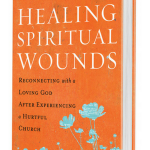
Image: Focus on the Family
In 2009, during the aftermath of the economic crash, Brio, the conservative Christian magazine for teenage girls published by Focus on the Family, folded alongside many other print publications. However, as we speak, it is unfolding and making its way into the hands of a new generation of teenage girls looking for answers to whether Bruno Mars is worth a listen and how to find “Mr. Right.”
My first question is this: aren’t the girls checking spotify top charts and chatting about their relationship angst with friends on snapchat? Isn’t there already an app for that? Is this revival really about serving the needs of teenage girls?
This is why I think Ruth Graham is on to something when she writes for Slate, “Brio is…for the adults who want to influence them—or to put a finer point on it, to protect them.” Because Brio assures conservative parents that the magazine presents conservative values, it is deemed safe to consume. “It was like the wholesome answer to Seventeen, so me reading it was never a concern,” Hayley DeRoche, now 30, tells NPR.
That parental impulse to protect our children from what will harm them is strong, as it should, but I want Christian parents to consider whether a Brio subscription will truly be effective in what they believe will accomplish: giving our teen girls a thriving life of faith.
First, this repackaging of secular teen mags in a sanitized version purportedly with ‘biblical worldview’ is a lazy copy of what the world is creating. Nobody makes change in the world by imitating it, but by creating something new. When a magazine serves a niche target audience (the Christian subculture), it can safely create subpar products without needing to compete with the larger pool of creative talent. When parents are so afraid of shielding their children from what’s bad in the world, sometimes they don’t count the cost of keeping them from what is beautiful out there. Sure, there are values that may not align with your family values in secular media, but there are incredible art, music, writing, video productions, that can inspire children to strive for excellence and create meaningful art that is true to their own values.
Second, if you think there aren’t questionable values in Brio, you may be naive. Who dictates what is a ‘biblical worldview’? The editors of Focus on the Family? Many friends tell me their families wouldn’t let them read Brio back in the 90’s because it was too liberal. As unbelievable as that sounds to me, the point is every publication will have a mixed bag of values, and just because it comes from what conservative parents may believe to be a trusted source doesn’t mean you as parents will agree with everything. Might you be lulled into a false sense of security by freely handing Brio magazines to your kids? Also, just because your child reads Brio does not necessarily mean she will act according to its advice columns. Like Debbie Fischer, she may read the advice but keep listening to music with premarital sex in it anyway.
Guiding our teens in living out their faith identity is so much more than sheltering them from the secular world. In fact, it is likely to backfire. I’ve seen it over and over again, conservative Christian parents whose children lose their faith as soon as they breach the Christian bubble and begin a painful process of deconstructing the beliefs of their upbringing. An authoritarian family structure dictating tight rules for Christian living crumbles when tested.
Here’s a better strategy: dissolve the Christian bubble. Dare to let your child walk boldly into the world, filled with all the complexities of humanity—gritty, nuanced, harsh but beautiful. Help them face the pain of heartbreak, embrace the art produced by those with diverse experiences, and wrestle with the plurality of ideas. Learn to connect deeply with your child and in turn, watch them build meaningful connections with others.
The biggest red flag about the production of Brio is when Bob DeMoss, the VP of content development at Focus on the Family, says that it will present an alternative option in opposition to LGBT relationships, abortion and premarital sex. This tells me they are recruiting a new generation of teen girls for culture wars instead of calling girls to live a compelling life of following Jesus.
Teen girls are not pawns for culture wars, they deserve to be raised as full humans with their own moral agency navigating a complex world of ideas. They deserve to live life not with a defensive posture but as adventurers exploring a diverse landscape. Give them tools to bolster confidence as they make choices, mistakes, and discover redemption in each of their unique paths.
And if you think subscribing to Brio will help with that, go right ahead–but I highly doubt it.
Join us at Raising Children Unfundamentalist












